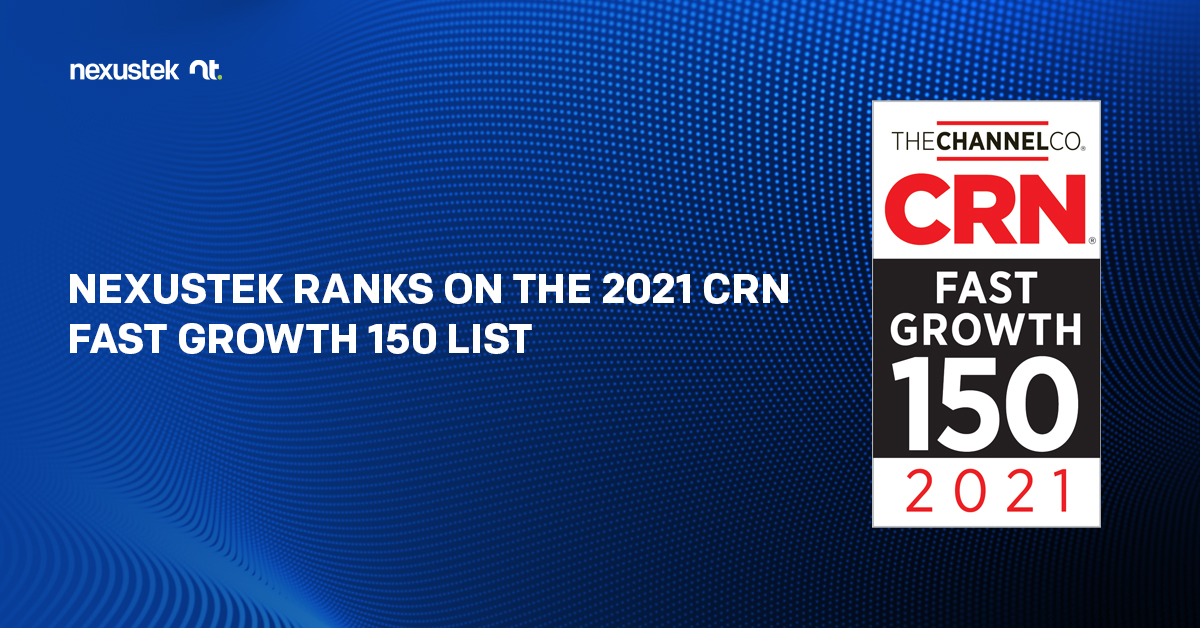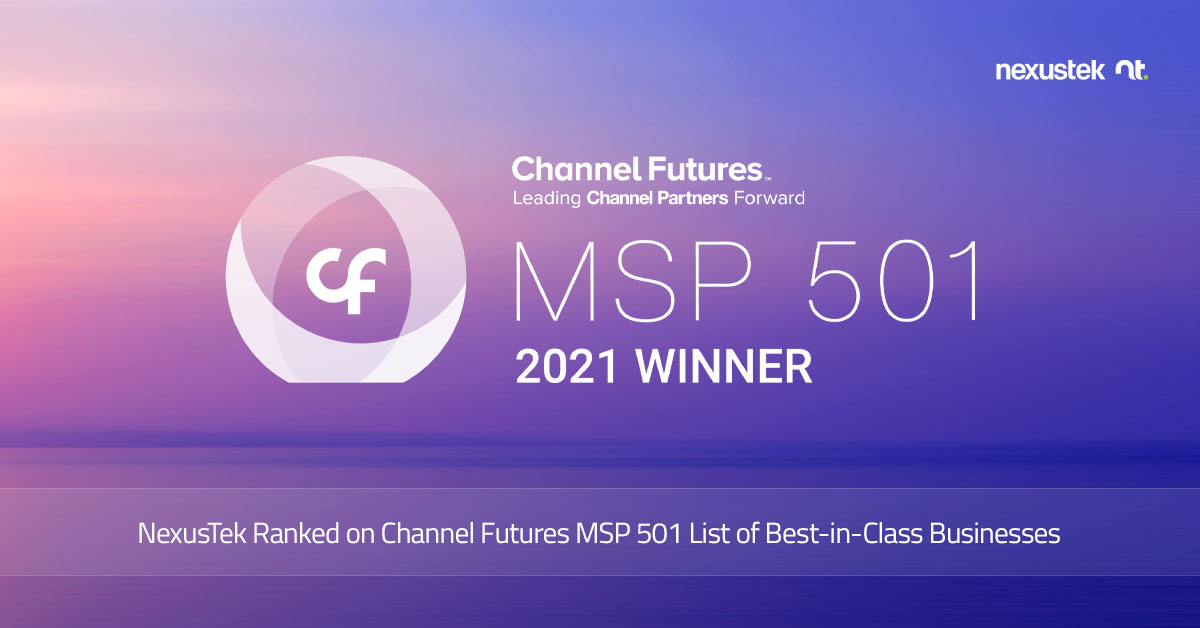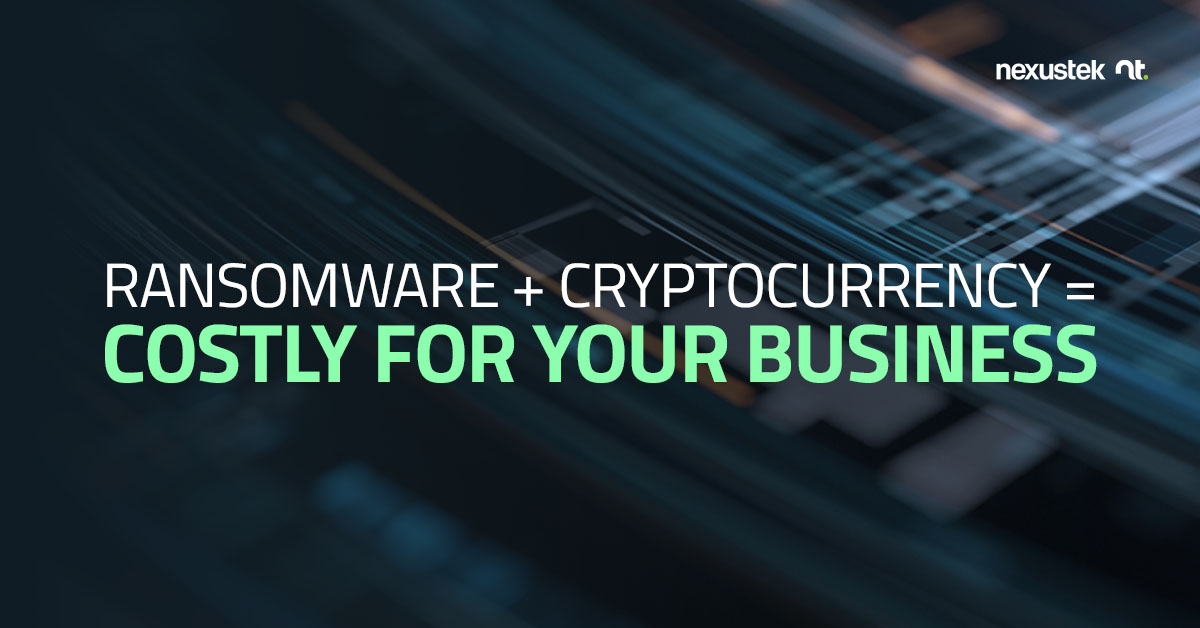
NexusTek Ranks on the 2021 CRN® Fast Growth 150 List
Managed IT services provider recognized among top IT channel providers for exceptional performance and growth
Denver, CO (August 27, 2021) – NexusTek, a national provider of managed IT services and full IT outsourcing solutions to businesses across the U.S., announced today that CRN®, a brand of The Channel Company®, has named NexusTek to its 2021 Fast Growth 150 list for the third consecutive year.
CRN’s Fast Growth 150 list recognizes the fastest-growing North American technology integrators, solution providers, and IT consultants for their significant growth and meaningful performance over the previous two years.
“We are pleased that NexusTek has once again ranked on CRN’s 2021 Fast Growth 150 list and want to thank our customers for their confidence,” said Scott Ray, Chief Operating Officer, NexusTek. “We have made significant progress at NexusTek in the past two years, from acquiring and integrating IT services firm, Symmetrix Solutions, to hiring even more exceptional employees. Throughout this expansive growth, we have maintained our primary focus on delivering consistently high customer service. We will strive to continually advance our offerings with the latest technology solutions and support our customers’ success.”
“In today’s unpredictable world, the pace of change within the IT channel is happening at breakneck speed. CRN’s 2021 Fast Growth 150 list highlights industry-leading companies within the IT channel and their ability to outpace an ever-evolving market,” said Blaine Raddon, CEO of The Channel Company. “The prominent companies on this year’s list serves as an inspiration, setting an admirable level of excellence for their peers to follow. We are thrilled to honor these industry-leading professionals and wish them continued success for the foreseeable future.”
A sampling of the 2021 Fast Growth 150 list are featured in the August issue of CRN Magazine. View the complete list online at www.crn.com/fastgrowth150.
About NexusTek
Trusted by thousands of businesses for over two decades, NexusTek, a national provider of managed IT services and full IT outsourcing solutions, offers a comprehensive portfolio comprising end-user services, cloud, infrastructure, cybersecurity, and IT consulting. Ranked among the top MSPs in North America and a multi-year CRN Triple Crown Award winner, NexusTek’s 24/7/365 domestically-staffed support team designs holistic technology solutions to improve business continuity, productivity, operational efficiency, and cost-effectiveness for companies across the U.S., Canada, Mexico, and the United Kingdom. As an SSAE 18 SOC II certified company, NexusTek conducts yearly rigorous security audits to ensure customer safety and provide optimal service.















